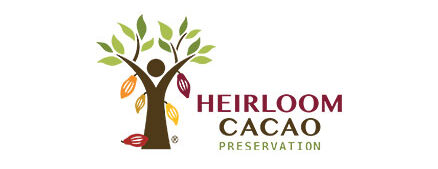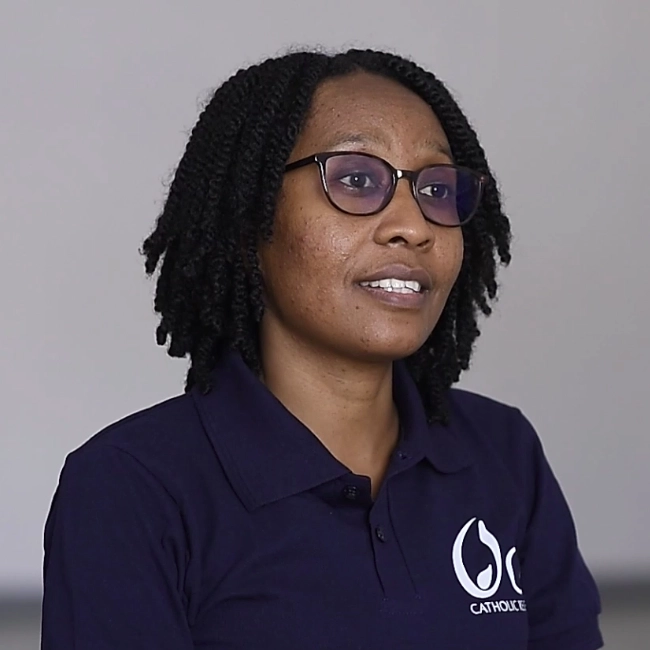The TSIRO Alliance is an innovative public-private partnership aimed at conserving Madagascar's unique biodiversity while improving the livelihoods of small-holder farmers through sustainable fine cocoa and spice production.
Launched in 2021, this $5.8 million initiative brings together USAID, Catholic Relief Services, and several private sector partners from the specialty chocolate industry.









In Malagasy the word TSIRO means ‘flavor’ or ‘taste’.
Madagascar’s incredible biodiversity is slowly disappearing as communities resort to destructive farming practices to cultivate their land. With already high rates of deforestation, poverty, and malnutrition, the island nation of Madagascar has an urgent need for holistic, innovative solutions. Currently, Madagascar faces many problems:
The TSIRO Alliance addresses these challenges through sustainable cacao and spice production. Our approach:
By purchasing sustainable fine chocolate from Madagascar, you directly contribute to preserving this irreplaceable ecosystem and improving local livelihoods. Every purchase helps balance conservation with economic development, ensuring a brighter future for Madagascar's people and its extraordinary wildlife.
The TSIRO Alliance is a joint initiative of the U.S. Agency for International Development (USAID), Catholic Relief Services, Specialty Cocoa & Chocolate Associates, and the Heirloom Cacao Preservation Fund, as well as private sector companies Madecasse-Beyond Good, Guittard Chocolate, Akesson’s Organic and Sahanala Madagascar.
Over a five-year period, the alliance will invest $5.8 million, dedicated to conserving biodiversity and improving the well-being and prosperity of local communities in Madagascar through sustainable fine cacao and spice production.
Two thousand Malagasy farmers will receive hands-on training in various agroforestry practices and the planting, maintaining, and harvesting of cacao and other spices. TSIRO will establish demonstration plots in strategic areas of the program area and will organize training, exchange visits, and pilot innovative techniques. Additionally, field technicians will conduct site visits to individual farm plots to provide more site-specific support.
TSIRO will also support a vocational training/education program to encourage youth to learn cacao and spice production techniques, literacy, numeracy, and languages linked to economically viable and environmentally friendly opportunities. For example, Akesson’s Organic and Guittard Chocolate will reutilize plastic to build/sell bricks or green charcoal that could provide energy for value chain activities.
TSIRO will continue to support existing and new tree nurseries. Access to inputs is critical for farmers to expand the production of key cacao and spice trees and plants. To diversify production, agroforestry systems will also include fruit trees, endemic trees, and other trees & plants such as fruits, medicinal plants, and others.
To increase cacao quality, the Alliance will provide fermentation boxes and drying pads. In addition, TSIRO will train farmers on fermenting and drying techniques to produce fine flavor cacao using fermentation boxes rather than banana leaf fermentation. Fermentation centers will be developed on larger farm plots or community sites for optimal “bulking” of farmers’ products and leveraging markets to larger buyers, including TSIRO partners Beyond Good, Guittard, and Akesson’s.
The TSIRO Alliance will provide basic tools, infrastructure, and supplies to improve farmers’ business management skills & access to financing early in the project (Years 1 and 2). As businesses grow, TSIRO also plans to bring a Business Services Development Specialist on board to support well-performing farmers groups to become “investment ready.”
Through CRS’ Savings and Internal Lending Committees (SILC) approach, 4,000 young people will learn basic financial skills. Youth participants will learn financial management, and household budgeting and have access to small loans that can cover costs for agricultural inputs or other needed items and also save money for education or health fees.
CRS will work with private sector partners and field technicians to implement a basic and advanced marketing curriculum. Further, CRS will work with farmers to incorporate and learn to collect data on farms using Farm Trace software. TSIRO will also work with private sector partners to strengthen Farm Trace systems (environmental and supply chain data) to help better monitor and adaptively manage the different parts of the supply chain to make it more efficient and effective.
The TSIRO Alliance will conduct a land tenure assessment in the first year to determine the true nature of land tenure in target communities. In communes where land tenure impedes agricultural production or farmer safety, TSIRO will help secure land rights for farmers to the extent possible. Finally, TSIRO will determine if resources are available to support land tenure programming in these areas by working with the local government and the World Bank Land Tenure Program.
Madagascar comprises 95% of the land that makes up the Madagascar & Indian Ocean global biodiversity hotspot; One of the 36 priority areas identified worldwide. The extreme diversity and high levels of taxonomic endemism combined with the high levels of degraded natural ecosystems make Madagascar a global priority for conservation and biodiversity investments.
The Tsaratanana Forest Corridor (COMATSA) and the Fandriana-Vondrozo Forest Corridor (COFAV) landscapes are important ecological zones under threat. Located in the northeast and the southeast of Madagascar, both have a high potential for sustainable agricultural production. However, poverty, malnutrition, and a lack of access to essential resources such as education, training, and inputs contribute to their degradation.
Because more than 90% of animals live in forests or woodland, deforestation has a devastating effect on Madagascar’s wildlife. Of the world’s 25 most endangered primates, six are Madagascar lemurs. According to the World Bank, slash-and-burn agriculture (tavy) accounts for 80 to 95% of deforestation. Fuelwood collection and charcoal production using timber from non-plantation forests account for 5 to 20% of deforestation. Seventy percent (70%) of the population uses wood, and 26% use charcoal as the primary cooking fuel per United Nations (UN). Indirect drivers include poverty, lack of infrastructure and investment in agricultural productivity, illegal timber exploitation and artisanal mining, poor governance, and corruption.
TSIRO Alliance’s Theory of Change fruits from a strong analysis of evidence-based approaches and promising practices that partners have implemented in Madagascar and other countries:
The TSIRO Alliance believes that…
The TSIRO Alliance will work with the Heirloom Cacao Preservation Fund (HCP) to identify tree species and farmers interested in and capable of growing unique cacao varietals. Later on, these trees can be designated and scaled up in collaboration with interested private sector partners. TSIRO partner Akesson’s Organic already has HCP designation, while Beyond Good is moving towards designation at some of their farms in the northeast of Madagascar.

Chief of Party at Catholic Relief Services
Email: [email protected]
